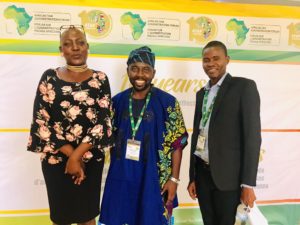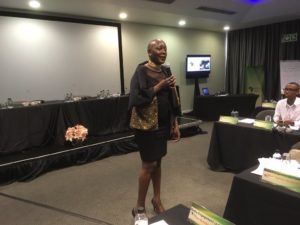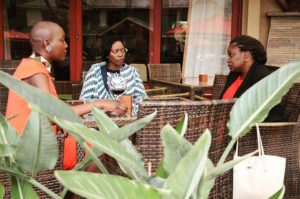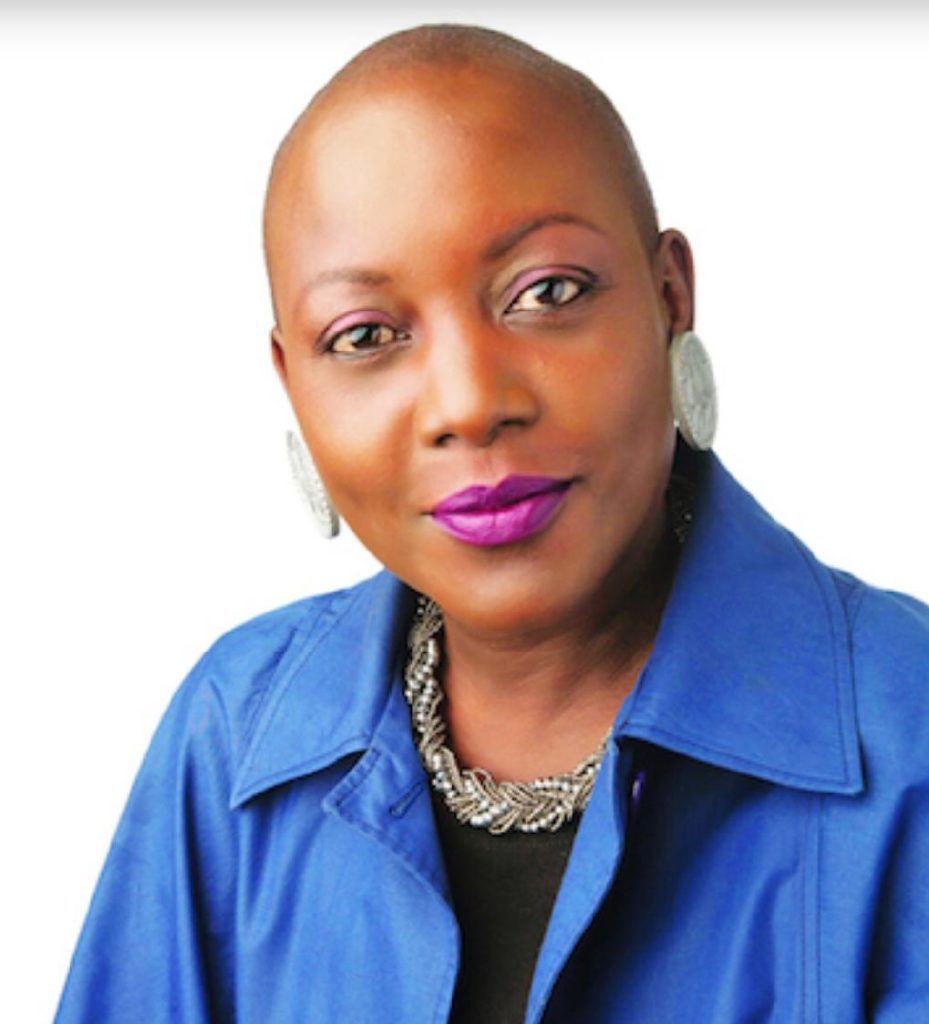Development Communications Consultant, Fiona Marwa in this interview with Lekan Otufodunrin offers suggestions on how to maximise learning opportunities and events in Africa and speaks on her career aspirations.
Profile
Fiona Marwa (nee Musana) is a Development Communications Consultant with over 20 years’ experience in facilitation, learning, programming and communications strategy development in various sectors.
A coach and public speaker, she holds a Master of Communications for Development Degree focused in Development Communication from the University of Zambia and a Bachelor of Arts (Upper Second Honours) Degree in Political Science and Literature from Makerere University Kampala.
She has lived in over 15 countries across the globe across three continents, Asia, Africa, Europe (and Turkey) and worked with international organisations including the Independent Evaluation Group (IEG) of the World Bank, ActionAid, Nonviolent Peaceforce Sri Lanka, African Leadership Initiative (ALI) Media Fellowship Programme, and Greenpeace Africa.
A permanent resident of South Africa, I am currently a communications consultant advising several organisations on wide-ranging development issues including prevention of violence against children initiatives; media engagement for tax administrations; and water, sanitation and hygiene (WASH).
She is also a lecturer at the Department of Journalism, University of Witwatersrand (Wits) where she is working on the Development Journalism course.
How will you describe the outcome of the second media engagement on tax in Rwanda where you served as the event moderator?
This programme is aimed at bridging the gap between tax administrations and the media; and subsequently with Africa’s citizens.
African Tax Administration Forum (ATAF) made history during this second media engagement. For the first time ever, Africa’s media and communications specialists working in the tax sector have formed a network called the African Tax Media Network, that brings together over 150 professionals that are seeking to promote domestic resource mobilisation, champion the need for meaningful public participation and hold governments to account for taxes that they have collected from their citizens.
As an event facilitator and moderator, this was personally gratifying because I believe in connections and collaborations. I believe that the African story can only be told by ourselves. We are part of the story, we are the story and we will share our voices as Africans. Through this network, we will make tax work for the benefit of Africa and its people.

What are the outcomes of the training and next steps?
Aside from the newly-formed network, this second session. highlighted the gaps and challenges in reporting on tax matters. Over 70 participants, drawn from 22 countries, and 63 media houses discussed the progress made thus particularly from the point of people-centred approaches to story-telling, there were still far-reaching challenges such as the right to information by the media and public as a critical impediment to reporting on Domestic Resource Mobilisation (DRM).
It was also felt that citizens are left out in terms of determining tax-thresholds and thus have no influence on government tax expenditure holding the government to account. It was also agreed that these perceptions become impediments to DRM. Concerns were also raised around the impact of emerging tax issues on Africa, namely illicit financial flows, tax incentives, standard setting, continental free trade, new technology and policy coherence.
Participants also agreed that digitisation was a reality that Africa can no longer afford to ignore. Specifically, the journalists noted that a lot of revenue is being lost through virtual operations and transactions that are being made remotely – thus eroding our much-needed domestic revenue. In sum, participants felt that there was a need to ramp up the capacity to report on the digital economy and its tax implications.
What are the expertise required for moderating and facilitating such events?
Action-Learning, listening, respect, time-keeping and in-depth understanding of individual media landscapes and country profiles. One needs to be able to guide participants through the objectives of the event. In some cases, facilitators tend to forget that they are only meant to encourage others to speak – their role is only to steer the conversations in the right way. I have also learnt that remembering names, countries and basic greetings, make a huge difference when moderating events.

How can we ensure that events like the media engagements don’t end up being talkshops without concrete follow up actions?
The creation of a common plan of action – with a clear mandate, with buy-in and sign-off by participants is key. Ambitious plans with no deliverables and commitment from all key stakeholders end up in workshop reports – with no follow-up.
For example, with the newly formed network, an interim task-force was appointed to kickstart the process and report back to the team within a month. In addition, an active WhatsApp group that has been in place since March 2018 has helped colleagues share experiences, co-author publications or connect on diverse matters.
What is your advice for participants of major training events on how to make the best of such opportunities?
Develop your own objective, read, prepare yourself, familiarise yourself with the agenda, identify participants with whom you can engage beyond the events, and more importantly Network with a Purpose. Use informal events to get to understand/meet other people.
Having been involved with managing media projects, what are your suggestions on how interested organizations can support capacity development for journalists?
Over time so many people have initiated capacity development initiatives for journalists with some success – there are a few noteworthy examples. I believe that it works best if one works with individuals rather than institutions.
Technical assistance and capacity-building initiatives that are designed, managed, monitored and implemented for Africans by Africans tend to have a longer shelf-life than those that might appear imposed on the continent.
In addition, one needs to develop a series of values-based capacity-building initiatives (on a small but phased scale). Finally, one needs to take on a creative and an action-learning approach towards capacity-building.
Are journalists making the best use of the opportunities they are getting?
I think that journalists could do better by using all the opportunities available such as paid-fellowships, invitations to publish articles in journals and speak at events. It makes a difference when one connects and collaborates with other peers and professionals in think-tanks and at universities.
In general, what has been your experience moderating and facilitating programs in the continent.?
It is such a fulfilling process, watching participants blossom, learn, share and challenge each other. It gives me such immense pleasure to be a part of this learning journey. I call it a Safari (Kiswahili for journey) because I have seen networks form, careers grow and individuals discover their true selves.
What are your aspirations your present line of work?
I would like to continue to facilitate and moderate learning events throughout Africa. It makes such a difference as I am also learning along the way. There is so much that I have learnt as a professional, and so much that I continue to pick from others. I call this journey, my PHD.

Any other thing you will like to speak on.
Africa is our continent and what better legacy can we leave our children than a proud set of nations. We can make a difference in our own ways. There are so many opportunities to connect, collaborate and communicate with others around Africa. Let’s grab these opportunities so that we can tell our own stories, in a language that our people understand best. We can motivate ourselves, regain our pride and shape our narrative in our way.
As a wife, a mother and a sister, I am lucky to have my family and friends around me. It makes a big difference when you know that you have people behind you, championing your cause.

